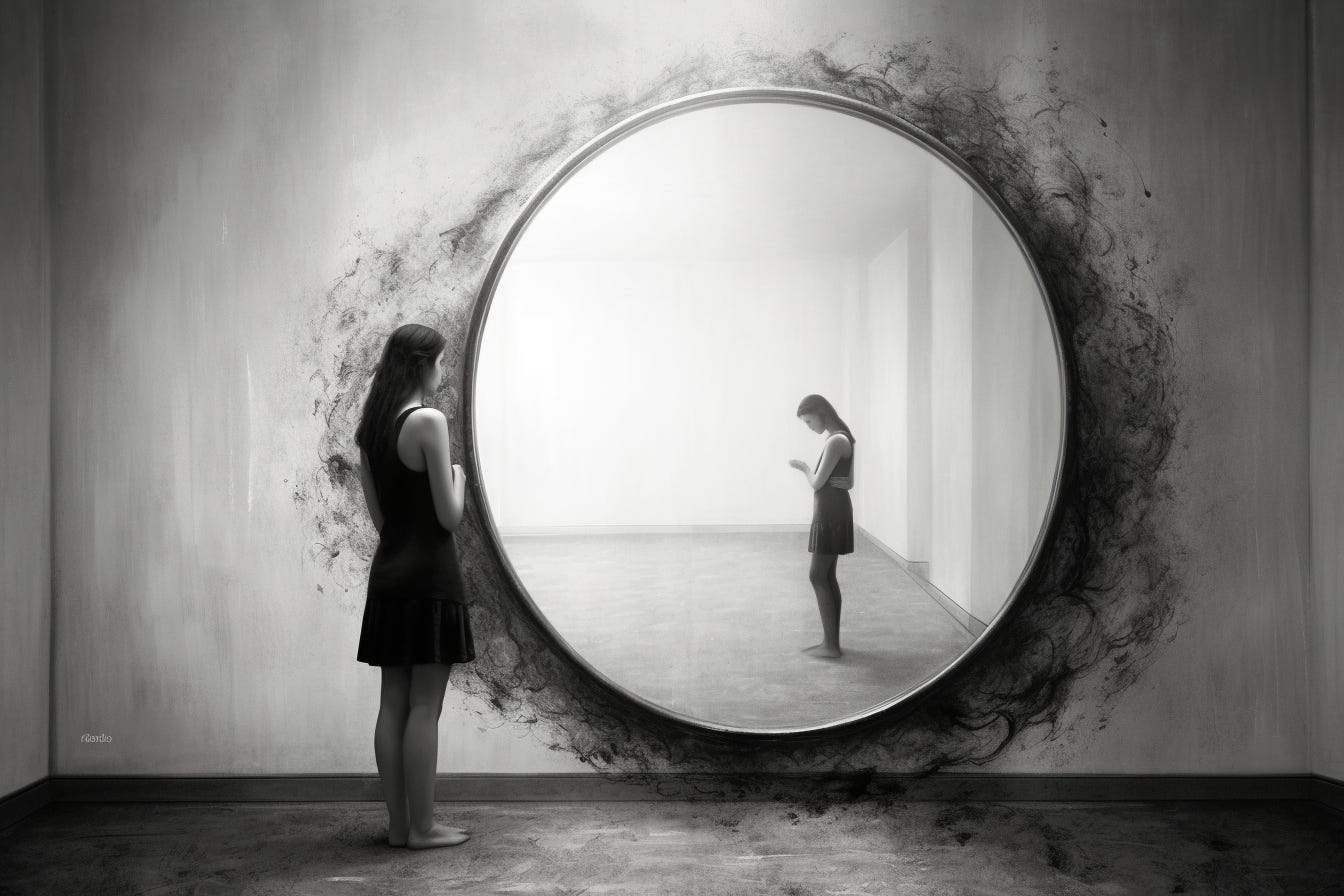The Case Against Judging Others: A Personal Journey
Leading by example with humility and self-growth is a far more powerful catalyst for change than throwing stones from a glass house.
“So when they continued asking him, he lifted up himself, and said unto them, He that is without sin among you, let him first cast a stone at her.” — John 8:7
I've been reflecting on my leadership journey over the years. And it has been a fascinating one, filled with tremendous self-reflection, learning, and growth.
My conviction to contribute to a better world has grown stronger with time. Simultaneously, I have become increasingly convinced of the importance of not judging others for their actions. This shift in perspective is not a sudden one, but a gradual transformation shaped by many factors.
My earliest perceptions of leadership and righteousness were heavily influenced by mass media, especially social media and cable news:
The voices that kept surfacing were those constantly casting judgments—declaring who was virtuous and who was evil, who was good for the world and who was detrimental. These judgment peddlers, with their hundreds of thousands, sometimes millions of followers, seemed to be the epitome of success. In the fog of immaturity, I began to believe that the purpose of life was to gain money and followers, and that judging others was a viable path to achieving this. The flawed logic suggested that if you could critique 'bad' people, you were obviously a 'good' person.
For years I was an active participant in the culture of judgment that pervaded social media. I spent significant time and energy online, throwing stones from my digital glass house. I was eager to join the chorus of judgment, even leading internet mobs, all in a misguided sense of self-righteousness. This toxic cycle of call-out culture and public shaming was fueled by a false belief that I was on a moral high ground, a fallacy that took time and introspection to unravel.
But as time passed, I found myself increasingly disinterested in judging others, even privately. Adhering to the principle, "He who is without sin, cast the first stone," I acknowledged my own imperfections, my own sinfulness. It felt hypocritical and unjust to decree judgments on others when I, too, was far from perfect.
Understanding the diversity of human experiences and circumstances has further solidified my stance. We often judge others without fully comprehending the context they operate within. Some environments do not easily foster good choices, and it feels unfair to judge someone for actions borne out of difficult circumstances. This realization has pushed me towards a path of empathy and humility, refraining from presumptions about a person's ability to walk a righteous path.
Moreover, the efficacy of judging others is questionable. Public shaming seldom results in genuine change; instead, it often entrenches resistance and defensiveness. If the goal is to foster growth and betterment, then judgment is rarely an effective tool.
I've come to believe that it is far more productive to judge oneself rather than others.
And if you are going to judge others, shout out role models whose virtuous ways you think deserve more attention. These loving shout-outs create a good atmosphere and inspire others to show love to others as well.
But back to judging oneself, why can it be so productive? Honest introspection can drive personal growth and self-improvement. It can encourage us to align our actions with what I call our "Golden Path"-the unique trajectory of life tailored to our talents, passions, and inherent nature.
My journey to fully step into my Golden Path is far from over, but I'm growing more confident about the journey ahead. Part of that journey involves guiding others to their Golden Paths, but I've learned that this is only possible if it's clear that I'm doing everything I can to walk my own path virtuously.
If you want to light the world, you must be the light first.
This idea is succinctly captured in the biblical text of Matthew 7:3-5:
"Why do you look at the speck of sawdust in your brother's eye and pay no attention to the plank in your own eye? How can you say to your brother, 'Let me take the speck out of your eye,' when all the time there is a plank in your own eye? You hypocrite, first take the plank out of your own eye, and then you will see clearly to remove the speck from your brother's eye."
These verses serve as a powerful reminder to address our own shortcomings before judging others. They challenge us to strive for personal growth and self-improvement, which ultimately leads to a more empathetic and understanding society.
When we become better versions of ourselves, we are better equipped to help others navigate their paths.
So let's shine our light inward first—to illuminate and improve ourselves—so that we can shine brighter for the world.




So well written and relatable. Human nature is such that it’s easier for us to see the external clearly than the internal. I’m still working on it, but have been able to flip the switch by turning any moment of external judgment into a trigger to immediately look inward.
Great introspection and a huge step on the path to self-discovery.